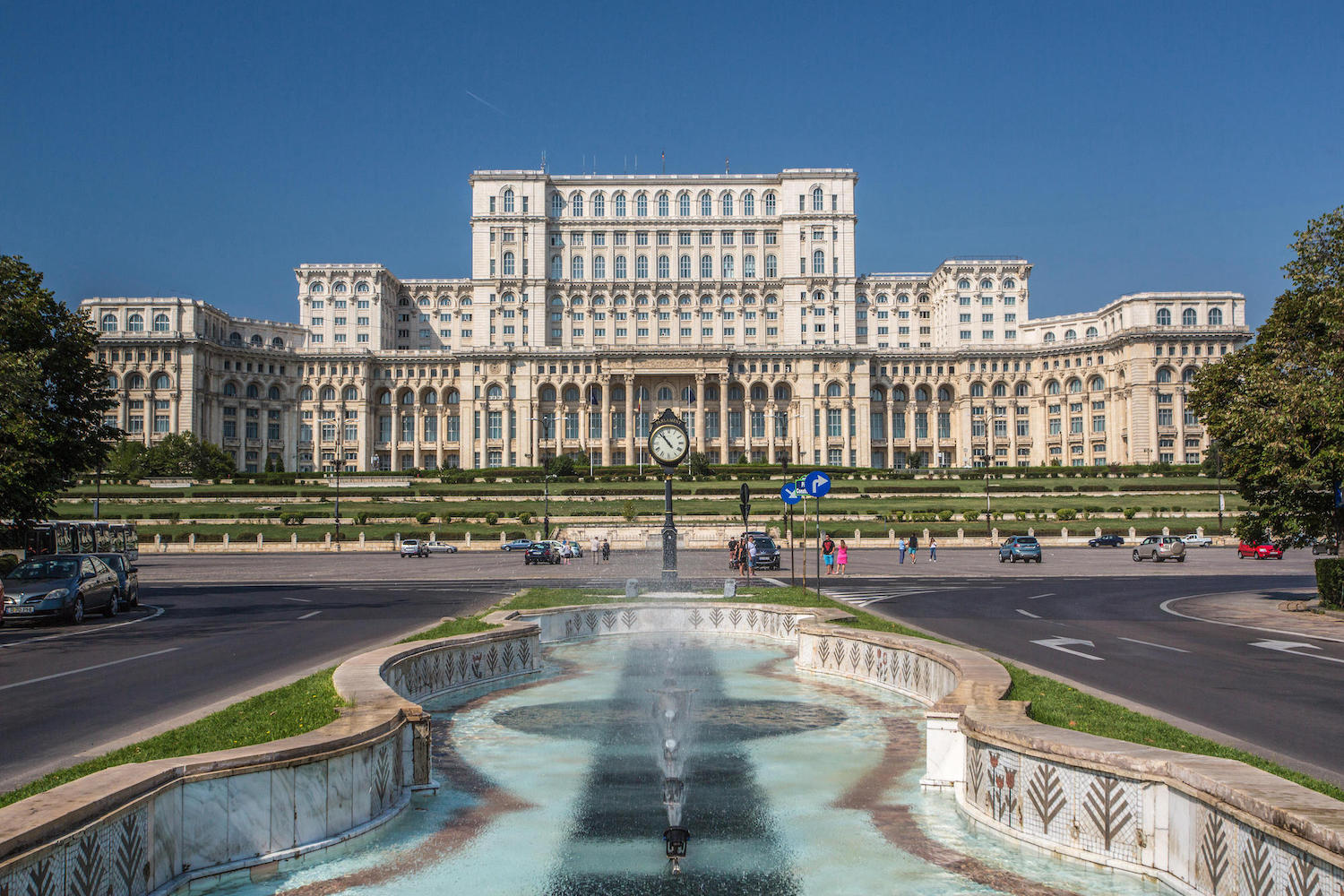As Romanian voters gear up for the European Parliament elections in June, polls are painting a surprising picture. In a country where far-right parties have been a fringe phenomenon for the past two decades, the Alliance for the Union of Romanians (AUR) is poised to secure a staggering 20 per cent of the vote.
Created just five years ago, the far-right party is expected to place second or third in the elections, close to Romania’s two ruling coalition parties, the leftist Social Democrats (PSD) and the centre-right Liberals (PNL).
AUR’s potential win aligns with a broader European trend – that of the rise of populist, far-right parties with a strong focus on nationalism and Euroscepticism across the bloc. These parties are on the verge of claiming key government posts in countries like Belgium, Slovakia and Spain. What impact will this surge have on the European political landscape, and how will it shape EU policymaking?
AUR’s rise can be traced back to the fertile ground of discontent sown by the Covid-19 pandemic. In 2020, its leaders capitalised on public fatigue with mainstream parties and anxieties around coronavirus restrictions, championing national sovereignty and traditional values. AUR secured over 9 per cent of the vote in Romania’s parliamentary elections that year.
Since then, its popularity has only grown. Alina Mungiu-Pippidi, a professor of comparative public policy at LUISS Guido Carli University in Rome, Italy, attributes the party’s rise to its ability to thrive on “conspiracy theories and [to] monopolise certain topics.”
 The parliament building in Bucharest | Alamy
The parliament building in Bucharest | Alamy
AUR is for instance the sole party in Romania that has advocated to end the Service for Special Telecommunications’ supervision of the electronic voting process. The intelligence state agency grew out of Romania's communist-era secret police. Mungiu-Pippidi told The Parliament that such positions imbue AUR with an “authentic touch” and a sense of fearlessness that appeals to some voters.
In 2020, AUR’s rise to prominence was significantly bolstered by the Romanian diaspora. With one in four Romanians abroad voting for it, AUR came in first in Italy and Cyprus, and second in France, Germany and Spain.
According to Magdalena Ulceluse, an associate senior lecturer in international migration and ethnic relations at Sweden’s Malmö University, AUR mainly resonated with people forced to migrate due to “poverty, low salaries, and a lack of job opportunities; those who, during the pandemic, couldn't afford to stay home and instead risked infection in the fields and factories of Western Europe”.
High inflation and soaring living costs, exacerbated by the war in Ukraine, might have further disenfranchised and radicalised these voters. “AUR remains the primary party catering to this audience, with a strong pro-diaspora rhetoric,” Ulceluse tells The Parliament.
The far-right party has recently also begun courting a new demographic – farmers.
Seeking to capitalise on their January protests against rising fuel costs, the influx of cheaper Ukrainian grain products and EU climate policies, AUR leader George Simion has drawn a parallel between farmers' grievances and the party’s “anti-system” positions on social media. Videos of the protests posted to his Facebook account in February were accompanied by statements such as: “Stop the trucks from Ukraine! If you won’t do it, Romanians will” and “Shame on the government.”
But when Simion appeared at a protest on the outskirts of Romania’s capital Bucharest, he was met by boos, with farmers accusing him of joining the rally to gain votes, according to local news reports.
Despite farmers’ insistence on remaining nonpartisan, Bucharest-based political analyst Cristian Pirvulescu, suggests that, out of all the country’s political actors, AUR stands to benefit most from the protests in the upcoming elections, positioning itself, with its anti-establishment stance, “as the people’s representative against the traitor elites.”
Ulceluse, the Malmö-based researcher, sees it differently. “Farmers would want a legitimate government to argue on their behalf on the European stage,” she suggests, rather than “an attention-grabbing populist party that does not yet have the substance to be taken seriously.”
What would this mean for the EU?
If it secures around 20 per cent of the votes, AUR would gain between five and seven seats in the EP. The party has already announced that it would use any seats it wins to bolster the European Conservatives and Reformists Party (ECR), the conservative, Eurosceptic group led by Italian Prime Minister Giorgia Meloni.
AUR’s Eurosceptic policies include plans to reform the EU institutions and overhaul or axe recently proposed EU measures, particularly climate change-related ones. Simion has referred to EU policy packages like Fit for 55 and Repower Europe as “crazy plans,”and argued that they are detrimental to eastern European countries still grappling with communist legacies, including poverty.
According to the European Council on Foreign Relations, AUR’s overall electoral gains could translate into 18 or more seats for ECR and 40 seats for the far-right Identity and Democracy (ID) group. Pirvulescu told The Parliament that the ultimate impact of these electoral gains “will be determined by the coalitions formed after the elections.”
A strong populist and “anti-climate policy action” coalition that includes ECR and ID could cast a shadow over the EU's legislative ambitions, especially in environmental and climate policies. The current centre-left coalition’s narrow victories could be at risk, endangering the Green Deal framework and the EU’s net-zero targets.
With the rise of AUR and its ideological kin across Europe, the 2024 elections won’t be a mere reshuffling of seats. They represent a potential ideological realignment that could redefine the European Union for years to come.
Sign up to The Parliament's weekly newsletter
Every Friday our editorial team goes behind the headlines to offer insight and analysis on the key stories driving the EU agenda. Subscribe for free here.